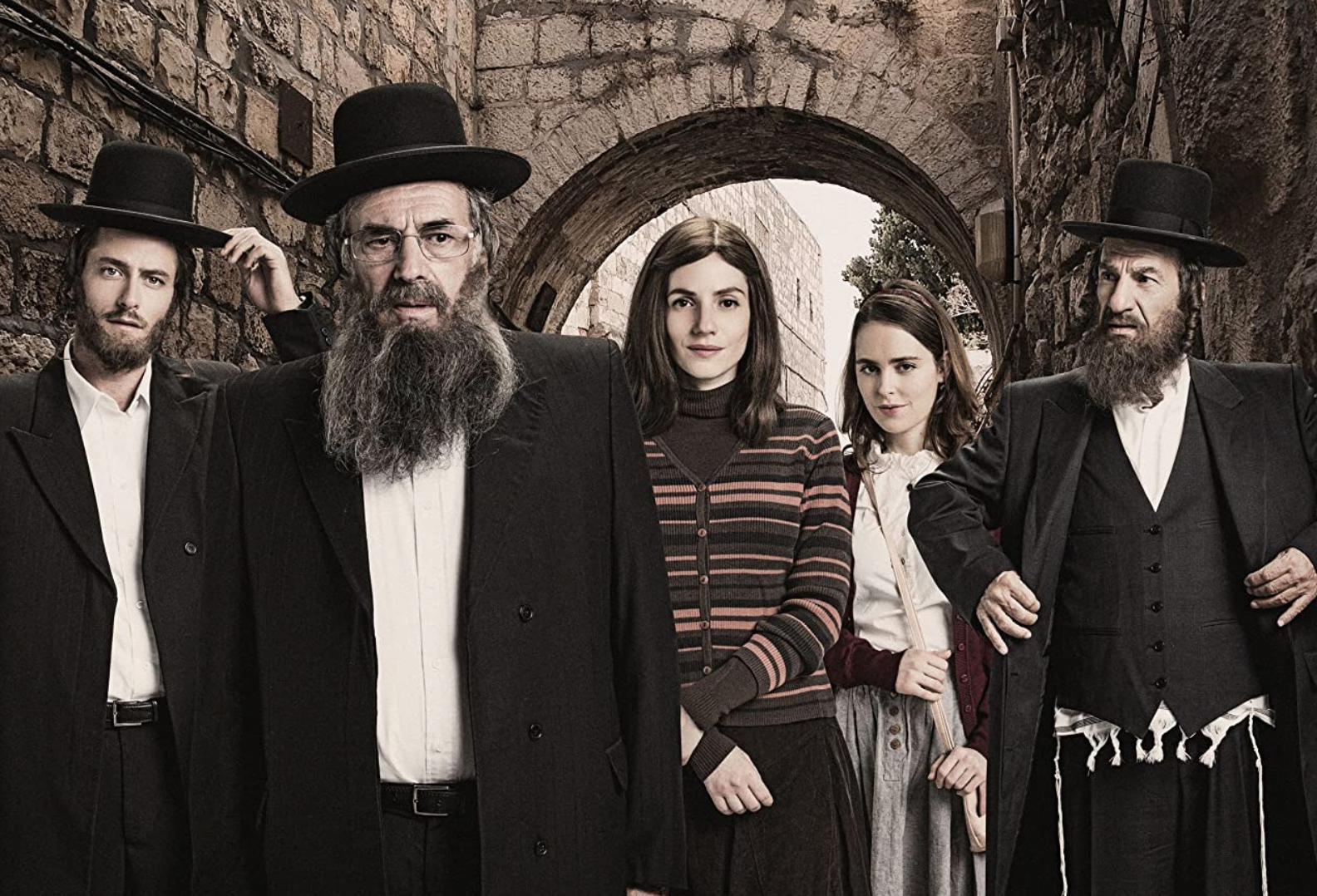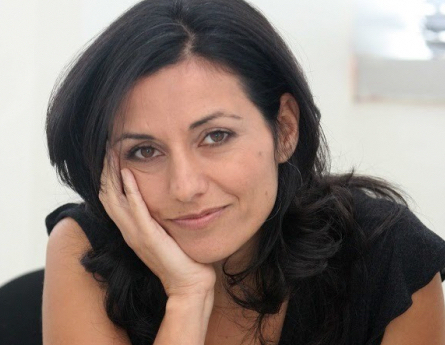Even though Israeli producer Dikla Barkai has a lengthy résumé of hit television, she is very selective about the shows she works on. After producing three seasons of the award-winning “Srugim,” she was waiting for a show that truly spoke to her. She had recently watched “Mad Men” and felt that she could never produce anything she was as passionate about.
Along came “Shtisel,” and her long wait ended. “Shtisel” went on to win the Israeli Television Academy Award for Best Drama and multiple other prizes.
Barkai’s recent TV credits also include “The Attaché,” “When Shall We Kiss?,” and “The Conductor.” Her film credits include “A Summer Story,” and she is now working on “Bibi,” a series revolving around the Israeli Prime Minister.
We spoke to Barkai about the new season of “Shtisel,” the popularity of Israeli TV shows, and what it was like to shoot during the pandemic.
Season 3 of “Shtisel” will launch on Netflix March 25.
This interview has been edited.
W&H: “Shtisel” completed production in early September of last year before Israel locked down again on September 13. It must have been so difficult to shoot during the pandemic. What were some of your other challenges?
DB: It was the beginning of the pandemic when we had planned to shoot the show in February and March. It was a very frightening time, especially for the older people on the set. We had to postpone our work to July and August when it is scorching in Israel. Filming scenes with masks on, heavy clothes, wigs, and beards in small apartments made it very difficult.
We couldn’t get insurance to cover the pandemic risks, so we were forced to work under increased pressure. We shot in multiple locations, moving from one place to another, using many actors and extras. The shooting took place between one lockdown to another. Each day was a miracle, and we did it with a lot of love.
W&H: What was your initial reaction when you read the “Shtisel” script nine years ago?
DB: One day Ori Elon, one of the writers, gave me the script about a father and son sitting on a balcony in Mea Shearim. I read it and immediately fell in love with it, and I knew I would spend all my time working on this project.
I am so happy because this show has the quality of a story you usually find in literature and a strong story that works well as a TV drama. Those who watch it will always find something relatable. It’s about Haredi people, but it can be about anyone. It’s so human. It’s about us; you can find yourself inside. It’s about parenting, love, relationships. It’s so delicate, but still, the story moves forward all the time.
W&H: Did you ever think that “Shtisel” would be so popular around the world?
DB: In Israel, it took some time for the audience to discover it. The series is unique: there is no sex, no violence. It’s very different from what we see on TV today. Our show became very popular in the second season, both with Orthodox and secular viewers. Then it was a huge success, and we won many prizes and awards.
We knew it succeeded in Israel, but it exploded in a minute when it came out on Netflix. We got so many responses from all over the world and across social media. We were so excited. We always knew we were doing something special. I felt blessed from the minute I lay my hands on the script. Still, I didn’t expect this response from around the world.

“Shtisel”: YES
W&H: What was the response like in Israel?
DB: Actually, I must say it was amazing to get such a surprising response from the Haredi people because they do not have television sets. They were watching it in other ways, like recorded versions on Whatsapp. It was amazing to get their positive response. Somehow, it went viral on the Kosher cell phone in Haredi society. Someone filmed it and sent it to their friends. We know that they felt a strong connection when they watched it. They recognized themselves in it. It was a great thing to get a response from the other side. Since I started working on this series, I’ve never looked at religious men the same way I had before. I got to know them and started to understand their way of thinking.
In one episode, Shulem, the family’s patriarch, sings a beautiful song. A few days after that episode aired on Israeli TV, we received a video from a wedding where they had played that song, music that we had invented. It was amazing to see a Haredi wedding playing our music! They had accepted our show.
W&H: The show also touches on the Haredi response to Israel. How important was that to the writers Ori Elon and Yehonatan Indursky?
DB: We tried not to say anything about how the Haredi feel about Israel, but of course it’s there. We chose to stay in the stories that are more common to all of us. In the scene, for example, about Israeli Independence Day, Shulem tells his students not to look out the window at the planes of the Zionists … flying to celebrate the country’s birth. He tells them not to do it because this is his way to assert his authority. Yet, he opens the window to watch it himself.
This scene shows us that he doesn’t take himself too seriously, nor does he take the rules against Israel seriously. He may say it to the others, but it’s not like deep down inside, he feels that strongly against it.
W&H: The writers, although they are both men, seem to understand how Haredi women and women in general feel. How did they get inside women’s minds?
DB: Both of them know something authentic about women’s emotional feelings. They know something about people that sometimes even people don’t know about themselves. They really can catch a genuine emotion.
W&H: How did you make sure the female characters in the show got the appropriate amount of attention, especially given that “Shtisel” is a show about the ultra-Orthodox?
DB: The Haredi world is a complicated world for a woman. The rules, the behaviors are strict, and there are no equal rights, for sure. But “Shtisel” offers other options within that rigorous society. There is always an option, which the Shtisel women [take]: they find their strength within the rules and limitations. Inside the families and their relationships, women can take a stand.
These two men, Ori and Yehonatan, wrote these beautiful stories about women [so we can see] them differently. Women don’t have the same rights as men, but they do have options. They do have a choice. There’s a long way to go, and I wish things would change for women in the Haredi society, as I do for women in secular society, but much more for Orthodox women.
Through the series, one realizes that these women can be compelling and still maintain the codes of conduct within their religion. Any woman can identify with this story, even if she is secular. Each and everyone has her narrative.
W&H: It sounds like you focused on the humanity within the community.
DB: We are secular people from the outside; we see only the headlines. It’s a cliché. When you go inside Haredi society, you will begin to understand that you don’t know everything about this world. What you see from the outside is not what it is inside. It is more complicated.
W&H: Israeli actress Shira Haas has become extremely popular since the second season of the show, having appeared in “Unorthodox” on Netflix. What was it like working with her?
DB: Shira wasn’t very busy last year, only because of COVID — the American television and film industries shut down. We have known Shira since she was 16 years old during the first season of the show. But we never felt that Shira was a child. She has always had the work ethic of an adult. Shira puts a lot of effort into her work and never gives up on herself.
W&H: There seems to be a resurgence for Israeli television as of late. What do you think about the state of Israeli TV today?
DB: It’s good because not only is Israeli content getting recognition outside of Israel, but Israeli actors and creators are getting work outside of Israel. All this recognition, the possibilities, and options are so good for the Israeli film and television industry. On the other hand, our production budgets are so low compared to budgets outside of Israel. Israeli budgets are much lower than American ones, yet the standard is getting higher and higher. More and more series are being sold to foreign distributors like Netflix. While it’s good to be on Netflix alongside other global shows, it’s very challenging.
Of course, it’s a privilege that Israeli series are so successful overseas, especially in the United States. As producers, we need a lot of creativity to keep up with the pressure, so we invest much more in writing the script than special effects.
“Shtisel “is probably an excellent example of this. We don’t have a budget for big cameras and crews. Our secret is in the script.
W&H: What is it like being a female producer in the Israeli TV industry today?
DB: Being a woman in a position like this is a struggle in production in Israel. I love what I do, and I wouldn’t change it for the world. I think that being a woman in this position is more challenging. The answer is not about our industry; it’s a general answer. People in our sector treat women very well now. The #MeToo movement did change something, but it was not the only revolution needed.
Now there is more awareness; people have started to pay a lot more attention. I don’t get mistreated by anyone in my industry, but underneath the surface, it’s a struggle. Most of the decision-makers are men. You have to fight for everything you want to say or achieve much more than a man does.
I love the men around me — the creators, directors, writers — but we do still live in a man’s world.
W&H: Lastly, CBS Studios announced that it is developing an American adaptation of “Shtisel.” How do you feel about this?
DB: We are very excited about the American remake of “Shtisel,” especially with the attachment of creator Lauren Gussis and the fantastic director Kenneth Lonergan. We wish them lots of luck with the series.







